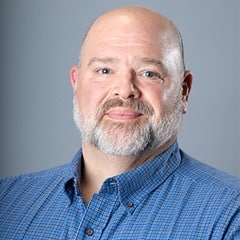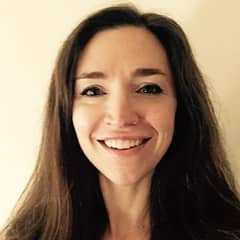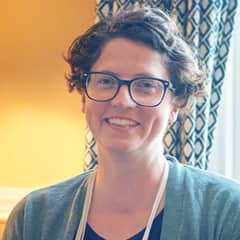How to Help a Child With Dyslexia in the Classroom

Reading is a fundamental life skill, but it doesn't come easily for all students.
Dyslexia is a disorder that primarily affects a person's ability to read, the National Library of Medicine (NLM) said. It's a language-based learning disability (LBLD) that makes up about 80% of all learning disability diagnoses, according to the NLM.

"When you understand how students with learning differences process information, you gain a clearer understanding of all students," said Dr. Danny Tanguay, an academic dean of education at Southern New Hampshire University (SNHU). "This knowledge helps you become more responsive, flexible in your teaching methods and more collaborative with families and colleagues. Ultimately, it doesn't just help students with learning disabilities; it elevates the entire learning community."
Tanguay holds a PhD in Educational Leadership and has worked in New Hampshire school districts as a teacher, headmaster and education director. "Whether you’re an educator, caregiver or advocate, learning how to support students with LBLDs transforms how you see and serve learners," he said.
What Challenges Do Children With Dyslexia Face?
According to the Mayo Clinic, some associated challenges and signs of dyslexia in school-age students include:
- Reading at a much lower level than expected for age
- Problems with processing and understanding
- Difficulty with spelling
- Avoiding activities involving reading
Dyslexia can be frustrating and affect self-esteem, which can result in a variety of emotional issues, as well, according to the International Dyslexia Association (IDA).
The IDA said dyslexia can be associated with the following emotional challenges:
- Anger
- Anxiety
- Depression
- Poor self-image
Learn about different types of learning disabilities.
What to Do if You Suspect a Child Has Dyslexia
If you think a student in your classroom may have dyslexia or another learning disability, Tanguay said it's crucial to share your concerns.
"When a teacher observes signs of a learning disability, it's vital to communicate these observations with parents or guardians and consult the school's special education staff to discuss next steps," he said. "Early observation and collaboration are key to getting children the support they need."
What is It Like to Work With Students With Dyslexia?

Teaching students with dyslexia is intentional, relationship-driven work. Students with dyslexia thrive when instruction is structured, explicit and tailored to their language and learning needs, according to Katherine Kinsman, MPA, MS.Ed, an adjunct instructor at SNHU and director of Landmark Outreach, a professional development program by Landmark School, which serves students in grades 2-12 with dyslexia and other LBLDs.
As a part of a long-time partnership between the schools, SNHU offers five graduate-level courses on dyslexia and LBLDs developed and taught by Landmark educators.
“At Landmark School, we use a language-based instructional model that supports reading, writing, listening and speaking skills, embedding and reinforcing language skills across the school day,” said Kinsman. She noted that this approach is both intentional and responsive, blending literacy instruction with strategies that support the development of executive function, metacognition and self-efficacy.

At the heart of it all is the student. “Kids are not quantifiable into easy categories,” said Kaia Cunningham, MS.Ed, Landmark School faculty member and SNHU partnership manager. “You have to meet them where they are, work to understand them and make sure they know you're in their corner.”
That understanding — that every student learns differently — underscores the need for instruction that is individualized, explicit and rooted in research. “When educators are equipped with methods that are both structured and responsive, students with dyslexia can thrive both in literacy instruction and across the curriculum," Kinsman said.
Should you get a special education teaching degree? Learn more.
How Can You Support a Child With Dyslexia in the Classroom?
Here are a few teaching strategies Tanguay suggested to support children with dyslexia:
- Break down complicated instructions into smaller steps that are clearly sequenced
- Encourage peer-to-peer collaboration and foster a supportive learning environment
- Incorporate multi-sensory activities like flashcards and videos to make learning more engaging
- Communicate regularly with parents to discuss progress and strategies used at home
"The goal is always to find the best mix of supports to empower each child with dyslexia to succeed," Tanguay said.
He noted that there are also specific teaching strategies that can help you provide individualized support to students. One is called Differentiated Instruction.
According to Tanguay, Differentiated Instruction is a responsive approach that involves adjusting methods, materials and assessments to fit the needs of individual students. "This might involve flexible grouping, learning stations or mixing visual, auditory and hands-on teaching techniques along with ongoing feedback and technology," he said.
Complimenting Differentiated Instruction, Tanguay noted, is Universal Design for Learning (UDL) — a framework that focuses on proactively designing learning environments to be accessible and engaging for all. "UDL minimizes barriers by providing multiple ways for students to access information, demonstrate what they know, and engage with the material," he said.
Tanguay said the Master of Education (MEd) with a concentration in Dyslexia and Language-based Learning Disabilities and the graduate certificate in dyslexia and language-based learning disabilities at SNHU both deeply integrate these approaches.
"By using both Differentiated Instruction and UDL together, we create an inclusive and effective learning environment that empowers every student — especially those with learning disabilities — to succeed," he said.
Find Your Program
Ready to Learn More?
Furthering your education can help you learn to create a more impactful and supportive learning environment for students with dyslexia. Earning SNHU's MEd with a concentration in Dyslexia and Language-based Learning Disabilities or the graduate certificate in dyslexia and language-based learning disabilities can advance your knowledge and prepare you to better support your students.
"This program focuses on understanding how students with language-based learning disabilities, such as dyslexia, learn and succeed with the right support," Tanguay said. "It emphasizes research-based, structured strategies that develop the whole child, specifically in literacy skills, executive functioning, self-expression and confidence."
He noted that you'll learn both theoretical and practical knowledge, including hands-on strategies to support students in meaningful ways.
"Graduates learn to design instruction that empowers students to self-regulate, process information more effectively and advocate for themselves — crucial skills both inside and outside the classroom," Tanguay said.
Mars Girolimon '21 '23G is a staff writer at Southern New Hampshire University where they earned their bachelor's and master's, both in English and creative writing. In addition to their work in higher education, Girolimon's short fiction is published in the North American Review, So It Goes by The Kurt Vonnegut Museum & Library, X-R-A-Y and more. Connect with them on LinkedIn.
Explore more content like this article

Associate Degree vs. Bachelor's Degree: What's the Difference?

How to Get a Scholarship (And Why It Matters If You Do)

What is Tuition Reimbursement? The Often-Overlooked Employee Benefit
About Southern New Hampshire University

SNHU is a nonprofit, accredited university with a mission to make high-quality education more accessible and affordable for everyone.
Founded in 1932, and online since 1995, we’ve helped countless students reach their goals with flexible, career-focused programs. Our 300-acre campus in Manchester, NH is home to over 3,000 students, and we serve over 135,000 students online. Visit our about SNHU page to learn more about our mission, accreditations, leadership team, national recognitions and awards.


